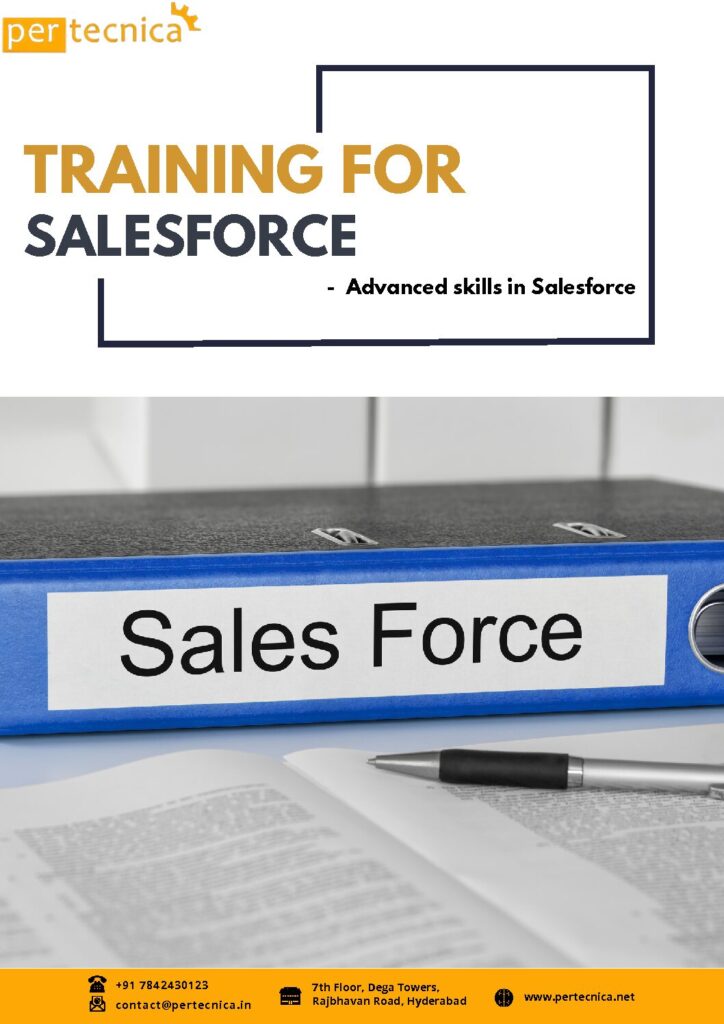Pertecnica Engineering stands out as a premier software training institution in India, renowned for its specially tailored employee training programs centered around Salesforce. Our meticulously curated Salesforce training is designed to empower professionals with comprehensive knowledge and practical skills in leveraging this leading customer relationship management (CRM) platform.
Participants immerse themselves in diverse modules covering Salesforce administration, development, customization, and implementation strategies. Through hands-on sessions and real-world case studies, Pertecnica ensures participants grasp the nuances of Salesforce, enabling them to design tailored solutions, automate processes, and optimize customer experiences. With a focus on industry best practices and innovative approaches, our training empowers individuals to harness the full potential of Salesforce, enhancing their capabilities in IT and software development. Embrace Pertecnica’s Salesforce training to become proficient in leveraging this transformative CRM platform for organizational success.

